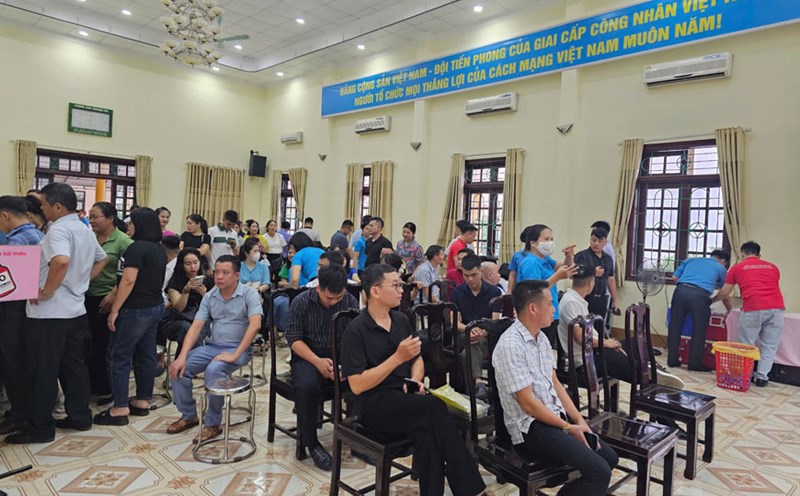Yen Bai is one of the localities that always have a shortage of many teachers and have difficulty recruiting, despite many policies to attract and support.
In 2021, because the number of registered teachers was only over 50% of the recruitment quota, Yen Bai province introduced a policy of immediately giving 100 million VND to teachers for teaching, but the number of new recruitment was insignificant.
In the mountainous area of Mu Cang Chai, in the last school year, the whole district lacked hundreds of teachers, especially many English teachers.
According to Ms. Hoang Thi Ngan - Principal of Vu A Dinh Primary Boarding School for Ethnic Minorities, the problem of attracting teachers is still facing many obstacles.

Although material and spiritual life in the highlands has improved a lot, public housing is guaranteed, roads are convenient, the Internet is everywhere... many teachers are still hesitant due to geographical distance and having to live away from their families.
This is the factor that makes many young teachers hesitant when choosing a long-term job in the mountains. For example, Vu A Dinh Primary Boarding School for Ethnic Minorities has a total of 25 classes, but only 31 teachers are in charge of the classes. Among the teachers, 3 were seconded civil servants who were transferred to be reinforced from other areas, Ms. Ngan shared.
In fact, difficulties in teacher recruitment also occur in the mountainous district of Tram Tau. Many school leaders recommend that to solve the shortage of teachers in a sustainable way, there needs to be a long-term strategy, focusing on training human resources right in the locality.
Pedagogical students who have started out in the highlands and want to return to their hometown to work should be given priority for recruitment and study support. They have great advantages in indigenous language and culture, and will easily integrate and stick with teaching for a long time.
In addition, those who have graduated in pedagogical majors but do not meet the requirements for a degree for recruitment also need to be given opportunities to study and improve their qualifications. When they meet the standards, they will become an important resource to serve the education career in their homeland.
"The State needs to add some support policies to attract teachers to work in disadvantaged areas. These policies may include salary increases and accommodation support to encourage teachers to stay long-term in areas lacking human resources. When they have enough conditions to stabilize their lives and work, teachers will have better motivation to work and commit to being attached to the school," said the leader of the Department of Education and Training of Tram Tau district.

Faced with the shortage of teachers, the education sector of Yen Bai province is implementing many solutions, especially seconding teachers from low-lying areas to high-lying areas, to ensure teaching in disadvantaged areas.
At the same time, develop plans to find sources for teacher recruitment, especially teachers of English and IT subjects; place orders to train teachers for the remaining subjects for the following school years; develop policies to attract teachers to work in mountainous areas and disadvantaged areas.
In addition to coordinating with Thai Nguyen University to organize bachelor's training in English pedagogical skills in the form of direct admission in the locality, the education sector of Yen Bai province is seeking support from Nam Dinh, Hanoi and Hai Phong provinces in arranging teachers to teach English online for primary and secondary school students.
In the context of a shortage of teachers, the Department of Education and Training of Yen Bai province is still paying special attention to the application of information technology in management and teaching activities. To date, the whole province has over 98.4% of teachers with digital transformation applications in teaching and 410 schools have deployed the use of school management software.
Along with that, 100% of schools use and update data periodically, in accordance with regulations on industry database software and stably use electronic scorebooks and records; 100% of schools have fiber optic internet for management and teaching activities.











